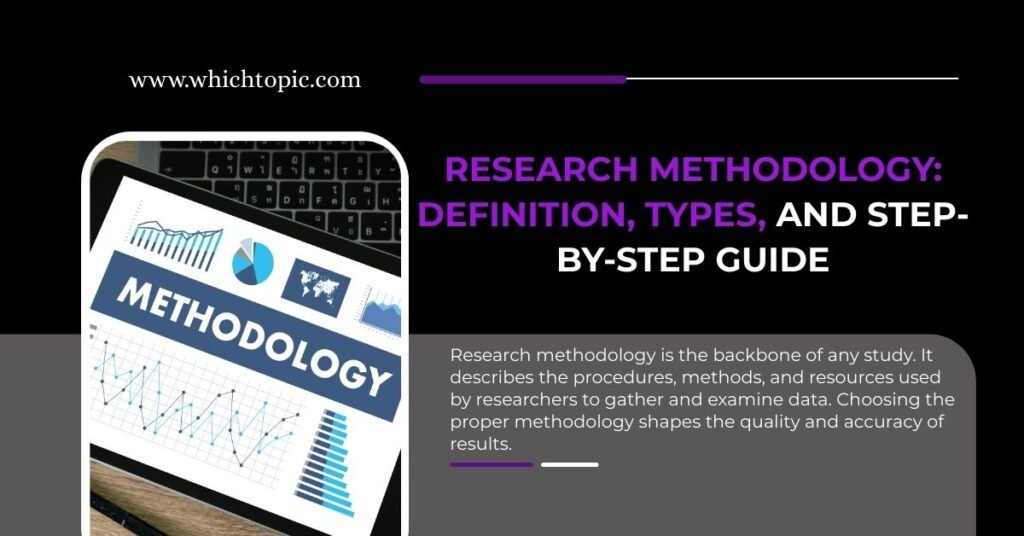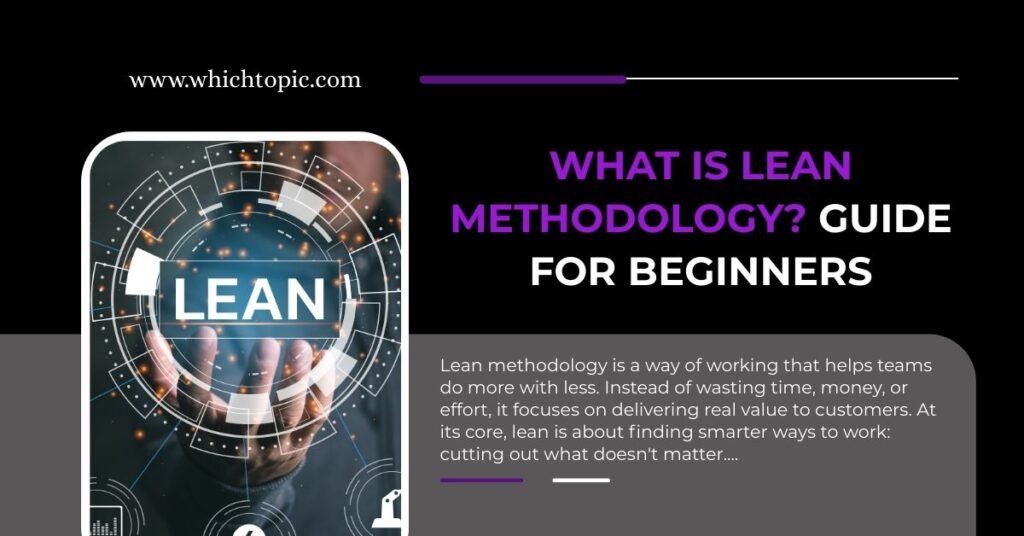In a world overflowing with data and complexity, the skill of creating sound global policies mostly depends on the basis of thorough research approach. Every significant international agreement, environmental control, or economic reform is the result of a Research Methodology Policies process meant to solve problems, test hypotheses, and offer evidence-based answers.
Policy’s Foundation: Knowing Research Methodology
The methodical plan and approach researchers apply to gather, examine, and interpret data is known as their research methodology. Whether by quantitative surveys, qualitative interviews, case studies, or mixed methods, it determines the instruments and approaches for addressing enquiries.
Regarding world policy, the approach guarantees that the evidence is pertinent, reliable, and legitimate. While well-designed studies can mislead decision-makers, strong approaches provide a strong basis for policies that successfully handle actual problems.
Evidence-Based Research’s Value
In Global Decision-Making Policymakers depend on facts to make wise decisions impacting millions of people that frequently balance difficult trade-offs and competing interests. Combining well-organised research techniques results in objective and thorough evidence.
Agreements on climate change, for instance, depend on a lot of scientific study covering socioeconomic studies, environmental impact assessments, and climate modelling. The world community can agree on practical targets and strategies only by means of thorough research approaches.
Managing Complexity: Research Designs Designed for Policy Contexts
Global problems ranging from economic inequality to public health crises are complex. Research approaches suited to this complexity apply creative ideas including systems thinking, participatory research, and scenario analysis. Essential for developing policies that are flexible and strong, these models reflect interdependencies and many points of view.
Using these cutting-edge technologies helps legislators better understand unintended consequences and stakeholder effects, thus guiding them towards more environmentally friendly solutions.
Practical Methodology: Case Studies Changing the World
Historical projects such as these clearly show how research methodology shapes world policies:
- Based on studies of chemical impact and atmospheric research, the Montreal Protocol effectively phased out ozone-depleting compounds globally.
- Multidisciplinary research combining epidemiology, behavioural studies, and economic modelling guided worldwide health policies informed by global HIV/AIDS Strategies, saving millions of lives.
Difficulties Linking Policy and Research
Translating research results into policy is still difficult even if it is quite important. Effective application can be hampered by political pressures, communication breakdowns, and chronological differences. Clear approaches with open reporting help to close these gaps by ensuring legislators grasp data limits and strengths, so guiding their decisions.
Crucially, strong channels of communication between researchers and decision-makers must be created. This synergy helps to shape policies based on reality instead of conjecture and increases the absorption of evidence.
The Future: Improving World Policy Using New Research Methodologies
Big data analytics, artificial intelligence, and real-time monitoring are among the emerging technologies that present fresh opportunities for policymaking research approaches. Important in fast changing global environments like pandemics or climate events, these tools enable dynamic policy changes and ongoing data collecting.
Adopting these innovative approaches promises a future whereby policies evolve responsively with the needs of the world and are not only informed by past data.
Research Methodology: The Unsung Hero of Policies Designed Effectively
Though policies often make news, the research process behind them should take front stage. Methodologies guarantee that policies are based on real ground rather than presumptions by defining how data is collected, analysed, and interpreted. For world problems requiring accuracy and responsibility, this basis is absolutely vital.
Evidence Over Opinion: Why Methodology Matters More Than It Ever Has
Research methodology is a gatekeeper separating fact from fiction in an era of false information. Policies guided by exacting standards enable governments to negotiate challenging issues including global health, environmental change, and economic stability. This evidence-based approach helps to build public confidence and validates political action taken internationally.
Customised Research Tools: One Size Does Not Fit All
Global policy challenges are many and complex. Different questions demand different approaches from experimental designs to longitudinal studies to anthropological research. Choosing the appropriate research model guarantees that results are pertinent and practical, opening the path for solutions that cut across cultural and financial limits.
Methodology’s Effect on Policy Success Stories
From controlling emissions to eradicating diseases, good research technique determines the success of many global projects. Accurate data collecting and careful analysis show the way forward, enabling legislators to create fair and successful policies.
Overcoming Obstacles: Applying Research to Practical Policy
If improperly presented, even the best research can fail. Policies based on openness and clarity help legislators to absorb difficult data. By means of constant communication between scientists and decision-makers, gaps are bridged and research is guaranteed to be turned into policies that really have an impact.
Embracing creative research methods helps future-proof policy
Research techniques must evolve along with the fast changes in the planet. Including predictive modelling, participatory research, and artificial intelligence-driven analytics gives legislators dynamic insights. These developments support flexible rules that react to crises in real time and new trends.
Developing Global Consensus with Dependable Data
Global collaboration mostly depends on common knowledge. Standardised research approaches provide a common language for countries, facilitating cooperation despite different agendas. Treaties, trade agreements, and cooperative projects necessary to solve world problems are made easier by this mutual confidence in data.
Methodological Research: Foundation of Global Policy Effectiveness
In the complex realm of world policymaking, choices affect millions of people across borders. Research methodology, the road map turning questions into practical knowledge lies behind these strong decisions. Policies run the danger of being based on weak foundations without a well-crafted approach, which results in unanticipated effects and public mistrust.
Strong approaches direct scientists in choosing suitable analytical frameworks, sampling strategies, and data sources. This rigour guarantees that results fairly represent complicated reality, so giving legislators dependable information to develop appropriate policies.
Examining the Research Process from Idea to Policy Action
Every policy starts a challenge or question. Structures of research help to guide the path from problem identification to suggested answers. It begins with clearly stating goals and selecting, depending on context, qualitative, quantitative, or mixed methods.
For example, while qualitative interviews record stakeholder experiences, quantitative data might show economic trends. Combining these strategies deepens knowledge and helps legislators create subtle interventions that appeal on the local level.
Trust Science: Why Methodology Creates Policy Credibility
In international forums where agreement is crucial, credibility counts greatly. Research supported by open, repeatable techniques helps governments, NGOs, and the public at large to feel confident.
Methodological rigour also guards against mistakes and prejudices that might distort data. Research integrity is kept in great part by peer review, ethical guidelines, and open reporting. The foundation of cooperative efforts tackling world problems including poverty, health pandemics, and climate change is this trust.
Focus on the Methodology Case Study Advocating Climate Agreements
Think about the Paris Agreement, a worldwide benchmark in environmental policy. It rests on decades of scientific study involving greenhouse gas inventories, climate models, and impact assessments. These approaches estimate future scenarios, measure emissions, and assess mitigating policies.
This data helps nations to create targets based on facts, thus promoting responsibility and tracking of development. Such a coordinated worldwide effort would lack coherence and legitimacy without strict methods.
Negotiating moral complexity using technique
Globally research has to negotiate delicate political, social, and cultural terrain. Methodology offers structures to do research morally, so honouring participant rights and guaranteeing inclusive representation.
Ethical research design expects hazards and reduces damage, so promoting fair policy development. Well-planned approaches help to hear underprivileged voices, so transforming policies into more fair and efficient means of supporting sustainable development objectives.
The Digital Revolution: Changing Methodologies for Research
Big data, artificial intelligence, and mobile technologies transform the way that research shapes policy. To record dynamic worldwide trends, methods now combine geospatial mapping, machine learning, and real-time data analytics.
These developments allow faster policy changes and more exact targeting of treatments. AI-driven predictive models, for instance, enable preemptive policy reactions saving lives and resources by helping to forecast economic shocks or disease outbreaks.
Problems and Solutions for Using Research to Guide Policy
Notwithstanding progress, applying research results to policy is still difficult. Effective use of evidence is frequently hampered by political agendas, communication gaps, and resource limitations.
Emphasising stakeholder involvement, iterative feedback, and co-creation of knowledge, methodologies can help to meet these challenges. Cooperative methods guarantee that research fits contextual reality and policy needs, so improving the possibility of successful application.
Capacity Development: Empowering Policymakers with Approach ologies Training
Evidence-based sustainable policies depend on constant capacity development. Research method training courses give legislators the tools they need to critically analyse data and commission quality studies.
This empowerment encourages policies that are flexible and evidence-based by means of a culture of inquiry inside governments and institutions. Supporting local research projects enhances world knowledge pools even more and generates a virtuous cycle of well-informed decisions.
Conclusion
Fundamentally, global policy is about decisions taken now that will determine the course of mankind. Research technique offers the road map for revealing truth among uncertainty and complexity. It helps leaders to act with assurance, supported by strong data instead of conjecture.
How might a greater dedication to strong research methodology change the policies directing our common future?


